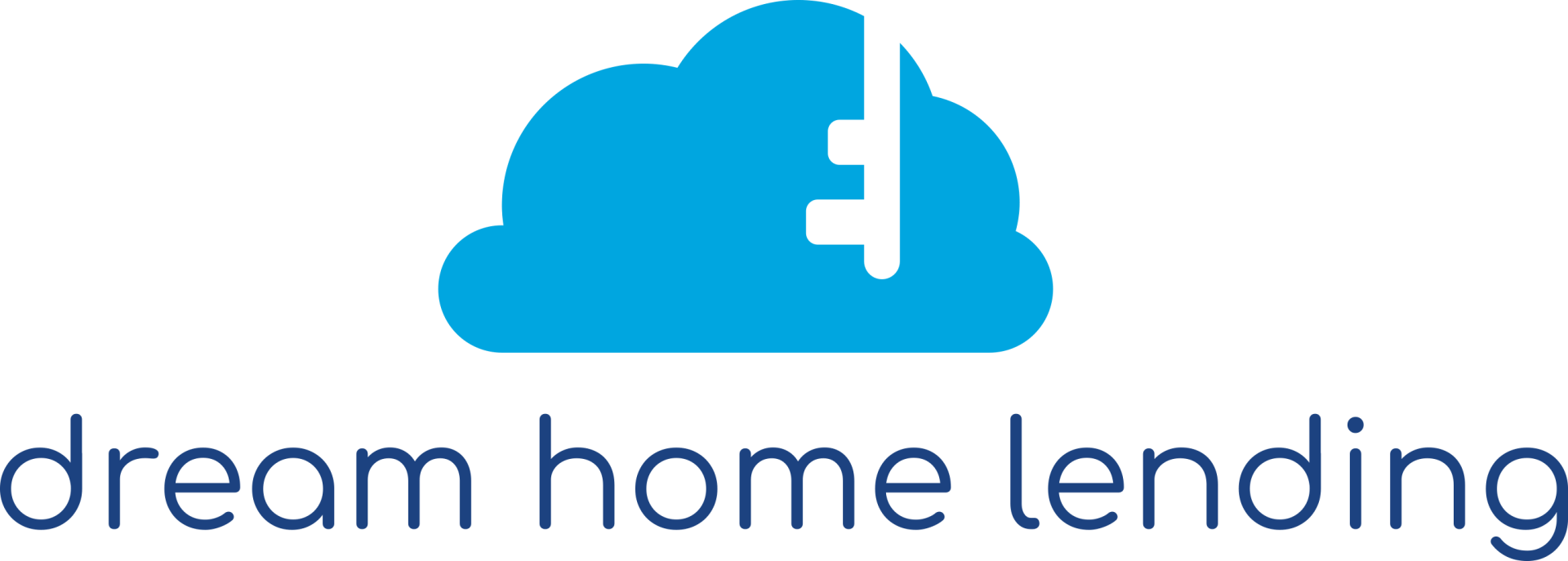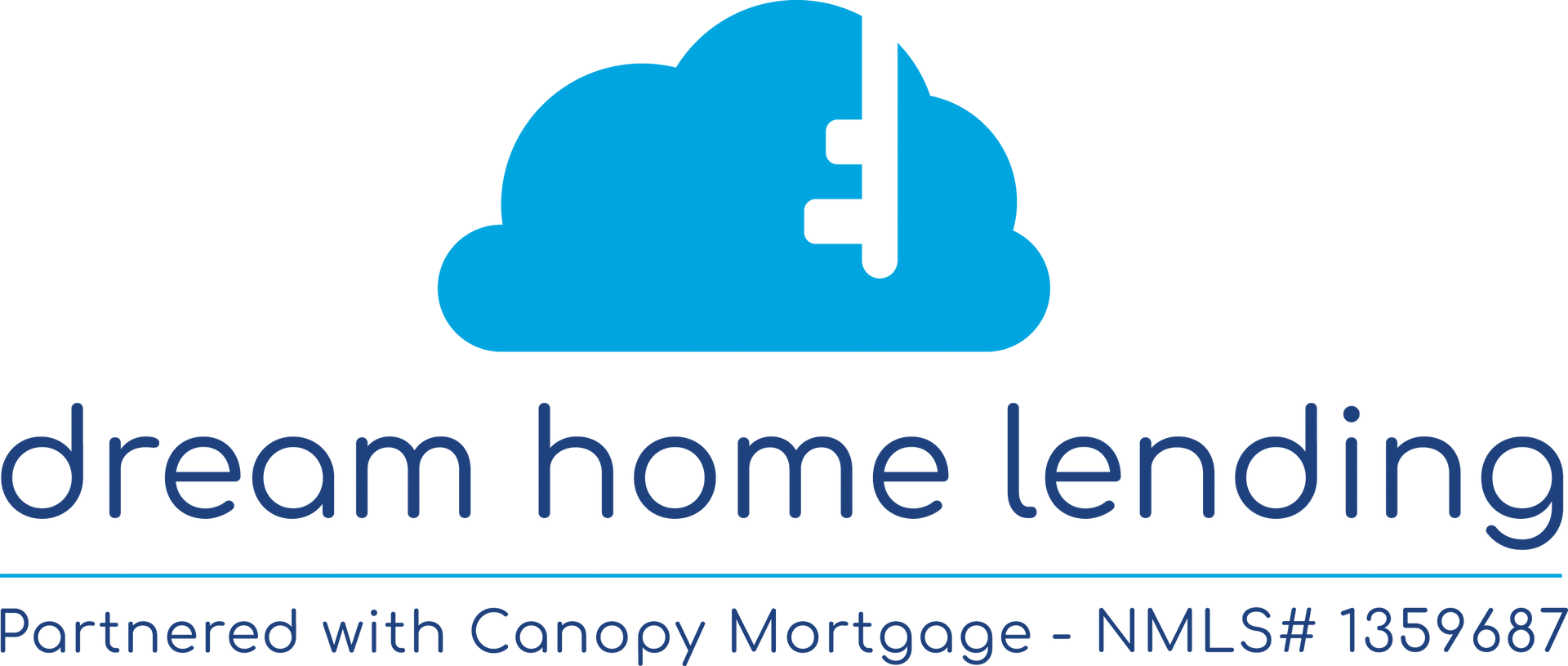Dream Home Lending makes the mortgage process simple
Our proven systems and attention to detail will make all the difference in your lending experience. We can't wait to help you finance your dream home!
Our Process

Begin Application
You provide us with information about you and submit your documentation easily by clicking below.

You're Pre-Approved!
Find out how much you can afford and begin the home search process.

The right people make all the difference
You already have a great mortgage planner, but do you need a reference for a great real estate agent? We know and trust outstanding people and would be happy to connect you.

Fall in love and make an offer
Fall in love with a home and work with your real estate agent agent, armed with your pre-approval, to make a strong offer.

Welcome Home!
We will make sure you have everything you need for a smooth closing.
Homebuyer Needs List
When you prepare to purchase a home, you will need to have some important documents prepared.
Below is a list of some of the items you will need. Remember that each financing situation is different. If you would like a list of needed documents for your specific situation, please contact us.
-
All Borrowers
- Copies of W-2s for the last two years;
- Copies of paycheck stubs for the last 30 days (most current);
- Copies of checking and saving account statements for the last three months (all pages);
- Copies of quarterly or semi-annual statements for checking, savings, IRAs, CDs, money market fund, stock, 401k, profit sharing, etc.;
- Income Tax Forms;
- Copy of sales contract when ratified;
- Employment history for the last two years (address any gaps of employment);
- Residency history over the last two years, with name, phone number, address and account number of Land or Mortgage Company;
- Rental property copies of leases plus mortgage information;
- Canceled earnest money check when it clears or corresponding bank statement, if applicable;
- Commissioned or bonused income — if 25% or more of base, must have two years of tax returns;
- Check for the expense of appraisal and credit report;
- Refinance Copy of Note, Deed of Trust, Settlement Statement, Survey, and Insurance information;
- Any assets used for down payment, closing cost, and cash reserves must be documented by a paper trail;
- If paid off mortgage in the last two years, need copies of HUD1;
- Copy of driver’s license for both applicant and co-applicant.
-
Self-Employed Borrowers
- Copies of most recent two years of tax returns (with all schedules including K-Is, if applicable);
- Copy of current profit and loss statement and balance sheet;
- Copy of corporate/partnership tax returns for the most recent two-year period if owning 25% or more of the company — copies of W-2s and/or 1099 forms.
-
Documents Which May Be Required
- Relocation Agreement - if move is financed by employer, i.e. buyout agreement plus documentation outlining company paid closing costs benefits;
- Previous bankruptcy: need copies of petition for bankruptcy and discharge, including supporting schedules;
- Divorce Decree, if applicable;
- Documentation supporting moneys received from social security/retirement trust income, i.e. copies of direct deposit bank statements, awards letter, evidence income will continue for at least three years.
-
Documents Needed For FHA/VA Loans
- FHA: Copy of social security card and drivers license for each applicant and co-applicant;
- VA: Original Certificate of Eligibility and copy of DD214 Discharge Paper; Name and address of nearest living relative; and, Child Care information.
Best Practices of Homebuying
Dream Home Lending has been dedicated to simplifying the home loan process for more than three decades. We deeply undestand the borrower experience, set clear expectations, and answer every question you have.
DO
- Notify us if your salary or other compensation changes from what is noted on your loan application
- Inform us if your address changes from what appears on your original loan application
- Obtain homeowners insurance with minimum coverage equal to the amount of your total loan or the replacement value of the house
- Keep documentation (“paper trail”) on any large deposits into your account: copies of all paperwork necessary to prove a financial transaction, including all checks, deposit slips, loan paperwork, forms to liquidate assets, etc.
- Notify us if you move funds from one account to another
DON'T
- Acquire any additional credit lines or make any large purchases on existing credit. (Buying a car, furniture, or appliances will change your debt-to-income ratios)
- Change jobs. A change in compensation may affect your ability to qualify. Lenders may verify employment on the day of closing as a quality control check
- Co-sign with anyone to obtain a line of credit or make a purchase. It will show up on your credit reports as an additional debt
- Negotiate your contract with an allowance and expect to get money back at closing
Glossary
Our team is going to work with you one-on-one to answer your questions and add incredible value, but we are mindful of your time. Here are some commonly used terms in mortgage lending.
-
Adjustable Rate Mortgage – ARM
A mortgage that permits the lender to periodically adjust the interest rate on the basis of changes in a specified index.
-
Amortization
The gradual reduction of the mortgage debt through regularly scheduled payments over the term of the loan.
-
Annual Percentage Rate APR
The measure of the cost of credit stated as a yearly rate; includes such items as the stated interest rate, plus certain charges.
-
Appraisal
A written estimate or opinion of a property's value prepared by a qualified appraiser.
-
Assumption
The act of becoming responsible for the repayment of a loan not originally in your name.
-
Bankruptcy
When a debtor yields his or her assets to the Bankruptcy Court and thereby is relieved of the duty to repay unsecured debts. After claiming this provision of Federal Law, the debtor is discharged of existing unsecured debt; the unsecured creditors may not continue collection actions. Although they may not take additional action to collect from the debtor, those creditors holding deeds of trust or judgment liens are secured by the property. Not all debts may be discharged.
-
Buy Down
A situation in which the lender subsidizes the mortgage by lowering the interest rate. During the first few years, the loan payments are low, but they will increase when the funding expires.
-
CAP
For an Adjustable-Rate Mortgage (ARM), a limitation on the amount the interest rate or mortgage payments may increase or decrease.
-
Certificate of Title
An attorney's written opinion establishing the status of title for a property as reflected on the public records. The certificate does not address issues not on record and offers no protection unless the writer of the certificate was negligent.
-
Closing Costs
Expenses that fall above the price of the property which are incurred by buyers and sellers in the process of transferring ownership of a property. Closing costs usually include an origination fee, discount points, appraisal fee, title search and insurance, survey, taxes, deed recording fee, credit report charge and other costs assessed at settlement. The cost of closing typically is about 3 percent to 6 percent of the mortgage amount. Closing costs will vary according to the area of the country; your Academy Loan Officer is able to provide estimates of closing costs for you.
-
Closing
Also called settlement, a meeting between the buyer, seller and lender and/or their agents during which the property and funds legally transfer.
-
Collateral
Property assured to secure a loan.
-
Commitment
A pledge by a lender to provide loan on specific terms or conditions to a borrower.
-
Conventional Loan
A mortgage not insured by FHA or guaranteed by the VA.
-
Credit Report
A report with documentation of the borrower's credit history and current status of credit.
-
Debt to Income
The relationship between a borrower's total monthly debt payments (including proposed housing expenses) and his or her gross monthly income; this calculation is used in determining the mortgage amount that a borrower qualifies for.
-
Deed
The written document conveying real property. The original piece of paper is not needed to convey title in the future once recorded at the county recorder's office.
-
Default
The failure to make a schedule payment or otherwise comply with the terms of a mortgage loan or other contract.
-
Deferred Interest
When a note is written with a monthly payment that is less than required to satisfy interest accruing at the note rate, the unpaid interest is deferred by adding it to the loan balance.
-
Delinquency
Failure to make payments in a timely fashion. Foreclosure is a possible result.
-
Department of Veteran Affairs
An independent agency of the federal government which guarantees long-term, low-or no-down payment mortgages to eligible veterans.
-
Depreciation
A decline in property value.
-
Discount Point or Point
A fee paid by the borrower at closing to reduce the interest rate. A point equals 1 percent of the loan amount.
-
Down Payment
Money paid up front to make up the difference between the purchase price and the mortgage amount. Down payments usually are 5 percent to 20 percent of the sales price on conventional loans.
-
Earnest Money
Money paid by a buyer to a seller to cement a transaction or ensure payment. Usually between 1 to 5% of the purchase price, the amount becomes a part of the down payment if the offer is accepted. The money is returned to the borrower if the offer is rejected. If the borrower cancels the transaction, the entire amount may be forfeited.
-
Easement
The right to use the land of another for a specific limited purpose.
-
Encroachment
The physical intrusion of a structure or improvement (such as a fence) on the land of another.
-
Equity
The owner's interest in a property, calculated as the current fair market value of the property less the amount of existing liens.
-
Escrow
An item of value, money, or documents deposited with a third party to be delivered upon the fulfillment of a condition. For example, the deposit by a borrower with the lender of funds to pay taxes and insurance premiums when they become due, or the deposit of funds or documents with an attorney or escrow agent to be disbursed upon the closing of a sale of real estate.
-
Federal Home Loan Mortgage Corporation - FHLMC
Also known as 'Freddie Mac,' the Federal Home Loan Mortgage Corporation provides a secondary market for mortgage financing by purchasing conventional loans.
-
Federal Housing Administration – FHA
A division of the Department of Housing and Urban Development. Its main purpose is the insuring of residential mortgage loans made by private lenders. FHA also sets standards for underwriting mortgages.
-
Federal National Mortgage Associates - FNMA
Also known as 'Fannie Mae,' this secondary mortgage institution is the largest single holder of home mortgages in the United States. FNMA purchases VA, FHA, and conventional mortgages from primary lenders.
-
FHA Loan
A loan insured by the Federal Housing Administration open to all qualified home purchasers. There are limits to the loan amount of FHA loans; these are dependent on the borrower's county.
-
Fixed Rate
Throughout the term of the loan, this mortgage interest rate will remain the same for the original borrower.
-
Foreclosure
Also known as a repossession of property, this occurs when the lender or the seller legally forces a sale of a property because the borrower has not met the terms of the mortgage.
-
Guaranty
The pledge of one party to pay a debt or fulfill a responsibility contracted by another if the original party neglects to pay or perform according to terms of the contract.
-
Hazard Insurance
When an insurance company covers the insured from loss or damage to the property resulting from issues, such as fire, windstorm and the like.
-
HUD
The U.S. Department of Housing and Urban Development. Established in 1965, HUD develops national policies and programs to address housing needs in the U.S. One of the main missions of HUD is to create a suitable living environment for all Americans by developing and improving the country's communities and enforcing fair housing laws.
-
Index
A published interest rate against which lenders measure the difference between the current interest rate on an adjustable rate mortgage and that earned by other investments (such as one- three-, and five-year U.S. Treasury security yields, the monthly average interest rate on loans closed by savings and loan institutions, and the monthly average costs-of-funds incurred by savings and loans), which is then used to adjust the interest rate on an adjustable mortgage up or down.
-
Interim Financing
A construction loan made during the completion of a building project. After completion of the project, a permanent loan typically takes the place of this loan.
-
Jumbo Loan
A loan which is larger than the limits set by the Federal National Mortgage Association (Fannie Mae) and the Federal Home Loan Mortgage Corporation (Freddie Mac). These loans typically hold a higher interest rate because they are not able to be funded by these two agencies.
-
Lien
A claim against property. Property is said to be encumbered by a lien and the lien must be removed to clear title.
-
Lifetime Cap
For an adjustable-rate mortgage (ARM), a limit on the amount that the interest rate or monthly payment can increase or decrease over the life of the loan.
-
Loan Origination Fee
This pays the administrative costs of processing the loan. Usually, it is expressed in points with one point being 1 percent of the mortgage amount.
-
Loan to Value - LTV
The relationship between the loan amount and the value of the property (the lower of appraised value or sales price), expressed as a percentage of the property's value. For example, a $100,000 home with an $80,000 mortgage has an LTV of 80 percent.
-
Lock in Period
The time period during which the borrower is guaranteed an interest rate by the lender.
-
Lock in
The lender guarantees a specified interest rate if a mortgage goes to closing within a set period of time through this written agreement. This typically specifies the number of points to be paid at closing as well.
-
Margin
For an adjustable-rate mortgage (ARM), the amount that is added to the index to determine the interest rate on each adjustment date, as stated in the note.
-
Market Value
The lowest price a seller would accept and the highest price that a buyer would pay on a property. The price a property could be sold for at a given time could differ from the market value.
-
Mortgage Insurance
Insurance that protects lenders against losses caused by a borrower's default on a mortgage loan. MI typically is required if the borrower's down payment is less than 20% of the purchase price.
-
Mortgage Insurance Premium
Insurance provided to the lender from the Federal Housing Administration (FHA) to cover an instance of the borrower defaulting on the mortgage. Borrowers pay one-half percent each month on FHA insured mortgage loans.
-
Mortgage
A voluntary lien filed against a property to secure a debt, usually a loan.
-
Net Effective Income
The borrower's gross income minus federal income tax.
-
Origination Fee
Lenders charge the borrowers this fee to cover the services needed to take a loan application, process it, and prepare it for closing; it is typically computed as a percentage of the face value of the loan.
-
Paper Trail
Copies of all paperwork to cover the lender should the borrower default on the loan. Depending on the lender, this may be required from the borrower. It can include copies of all checks, deposit slips, loan paperwork, forms to liquidate assets, etc.
-
PITI
An acronym for the four primary components of a monthly mortgage payment: principal, interest, taxes, and insurance (PITI).
-
Pre-Paid Expenses
Needed to create an escrow account or to adjust the seller's existing escrow account; taxes, hazard insurance, private mortgage insurance and special assessments can be included in the prepaid expenses.
-
Pre-qualification
A preliminary assessment by a lender of the amount it will lend to a potential homebuyer. The process of determining how much money a prospective home buyer may be eligible to borrow before he or she applies for a loan.
-
Principal
The amount of money owed on a loan, excluding interest. Also, the part of the monthly payment that reduces the remaining balance of a mortgage.
-
Private Mortgage Insurance PMI
Insurance coverage required for expenses incurred if the borrower defaults on the loan. Borrowers typically are required to carry private mortgage insurance when they have a small percentage of a down payment to offer. An initial premium payment of 1% to 5% of your mortgage amount will be required. Private mortgage insurance also may necessitate an additional monthly fee depending on the borrower's loan structure.
-
Recording Fees
A lender is paid this money for recording a home sale with the local authorities; this makes it part of the public records.
-
Refinance
Acquiring a new mortgage loan on a property already owned; this usually is done to replace an existing loan on the property (often to benefit from a lower interest rate).
-
Rescission
The cancellation of a contract. In regards to mortgage refinancing, by law the homeowner has three days to cancel the new loan if the agreement uses equity in the home as security.
-
RESPA
Real Estate Settlement Procedures Act. Through this, lenders are obligated to disclose information to potential customers throughout the mortgage process. By doing so, it protects borrowers from abuses by lending institutions. RESPA requires lenders to fully inform borrowers about all closing costs, lender servicing, escrow account practices, and business relationships between closing service providers and other parties to the transaction.
-
Second Mortgage
A mortgage that has a lien position subordinate to the first mortgage.
-
Simple Interest
Interest calculated only on the principal balance.
-
Survey
Conducted by a registered land surveyor, this measurement of land shows the location of the land with reference to known points, its dimensions, and the location and dimensions of any buildings.
-
Title Insurance
Coverage against loss or damage resulting from an error in title ownership to a particular piece of property. Title insurance protects against inaccuracies made during a Title Search as well as issues that could not be known or discovered through the public records such as missing heirs, mistakes, fraud and forgery.
-
Title Search
When a title company or title attorney researches municipal records to verify the legal ownership of a property.
-
Title
Indicates ownership of property. A property owner is said to be 'in title.'
-
Truth in Lending Act
A federal law intended to promote the informed use of consumer credit by requiring disclosure about its terms and costs. Creditors are required to disclose the cost of credit as a dollar amount (the finance charge) and as an annual percentage rate (APR).
-
Underwriting
A step in the loan process where it is decided if a loan will be provided to a potential home buyer; this decision is based on credit, employment, assets, and other factors and the matching of this risk to an appropriate rate and term or loan amount.
-
VA - US Department of Veteran Affairs
A federal government agency that provides benefits to veterans and their dependents, including health care, educational assistance, financial assistance, and guaranteed home loans.
-
Verification of Deposit
The borrower's financial institution signs this document to verify the status and balance of his/her financial accounts.
ARE YOU READY?
Contact us today to see how we can help your buyers with their home financing needs. We provide the best service for your referrals and guide them confidently during the home buying process.
We will get back to you as soon as possible
Please try again later



